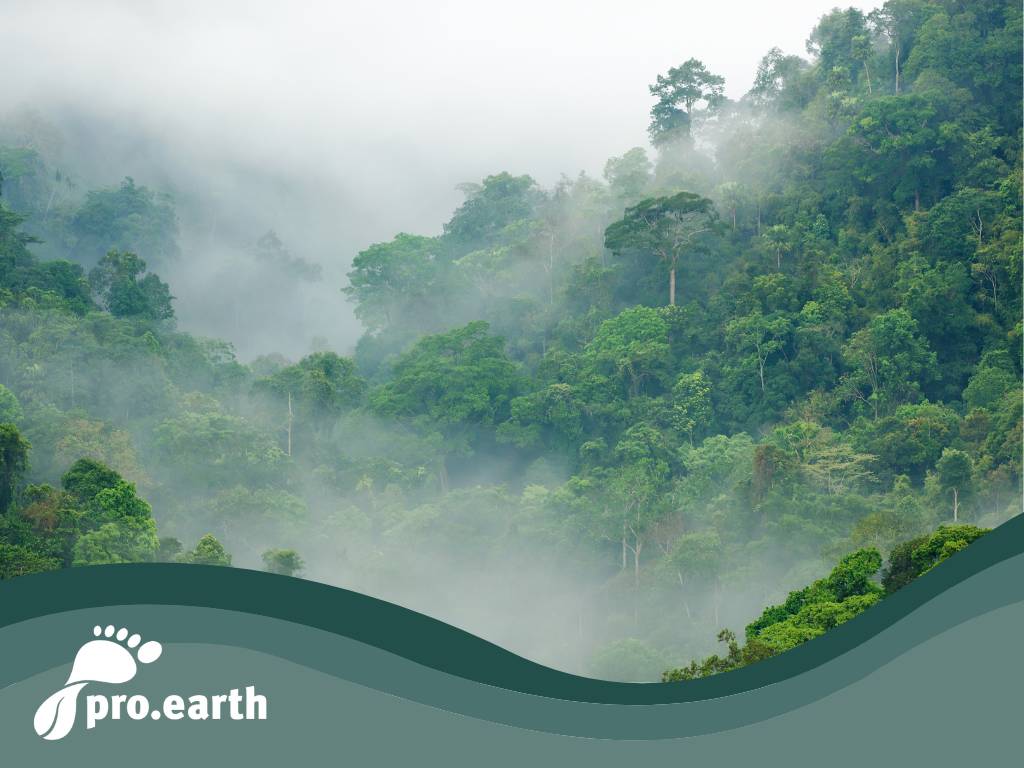EU: First global law to stop deforestation comes into force

Today, on International Tropical Day, the new EU forest protection law comes into force. NGOs have been fighting for this for more than two years in the Europe-wide #Together4Forests campaign. Many see this as a historic milestone on the way to better protection of forests. This is because it is the first law in the world to ban trade in products derived from forest destruction.
At the same time, the human rights organization Südwind points out that much remains to be done. Because now it is the turn of Austria and the other member states. Südwind appeals to the responsible ÖVP Minister for Agriculture and Forestry, Norbert Totschnig, to ensure effective compliance with and enforcement of the regulation. "The loopholes in the EU Timber Regulation must be a lesson to us: without strict controls, there can be no effective law," says Joachim Raich, Südwind forest protection expert. "In order to finally take effective action against illegal imports from destroyed forest areas, we now need sufficient resources for strict controls and deterrent penalties for violations."
The current situation
According to a WWF report, the EU is the world's largest importer of products linked to rainforest destruction after China. In 2017, the EU was responsible for 16% of rainforest deforestation. Forest the size of a soccer pitch is destroyed every two seconds, writes Greenpeace. 90% of the resulting land is used for the cultivation of agricultural products such as palm oil, cocoa, meat, wood, rubber or soy, or for the extraction of mineral resources.
Law as a trend reversal
"The new EU forest protection law could herald a turnaround in forest protection. But even the best law is only worth as much as its enforcement," says Raich. "However, the protection of human rights is also essential. Indigenous groups, whose livelihoods are based on the forests, are particularly affected. The law needs to be tightened up here in the future."
https://news.pro.earth/2022/12/13/eu-importverbot-fuer-mehr-regenwaldschutz/
Criticism of the new regulation
The biggest point of criticism from many NGOs such as WWF, Südwind and Greenpeace is the fact that other forest-like ecosystems such as the species-rich Cerrado in Brazil have not been included. "If other ecosystems such as savannahs and wetlands are not included in the regulation as soon as possible, their destruction threatens to progress all the faster," warns Greenpeace forest expert Gesche Jürgens.
Further timetable
After today's entry into force, companies have 18 months to prepare for the EU Forest Law. Only then will it apply to them. From then on, an import ban will apply to a range of products such as soy feed, palm oil, beef, leather, wood, cocoa and coffee that have been produced on land that was deforested after December 31, 2020. The national control authorities must also begin enforcement after 18 months. Their competencies and resources must be built up by then.
Our pro.earth. Conclusion:
We are looking forward to this law, as it is not only a milestone but also a beacon. We would like to see effective implementation at national level, including strict controls, so that it does not become a toothless tiger. We hope that this will force companies to act more sustainably and defuse the massive attack on so many ecosystems. Sounds like a noble wish.






